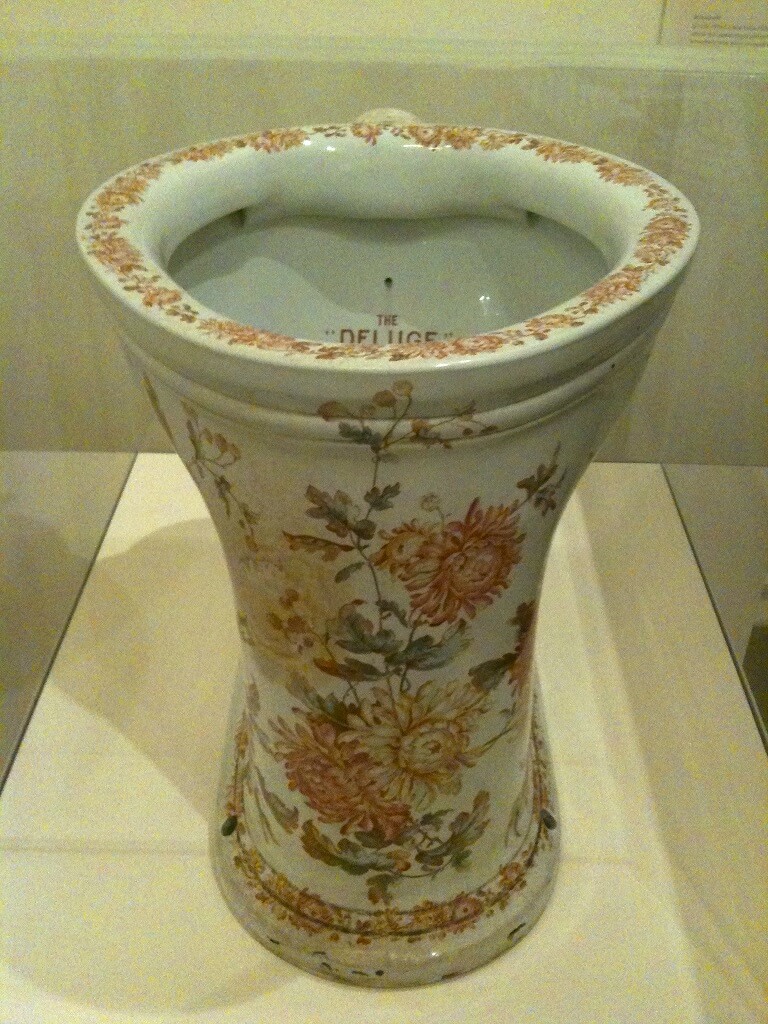Despite Melbourne having been sewered in the 1890’s, the Maynards did not have a septic toilet. They used an “earth closet” or “thunder box” in an outside shed, and a chamber pot during the night.
The “thunder box” was widely used as a toilet before the development of sewage systems. After use, dry loam or clay was added to mix and dry the waste, which was called night soil.
Once a week, “nightmen” would empty the pan through a small door at the back – a very unpleasant and smelly job.
The waste was then used as fertiliser by market gardeners, but as Melbourne grew, the system began to break down. Infectious diseases, such as typhoid, that were associated with these unsanitary conditions, were on the increase.
By the 1920’s, only a few properties in Melbourne were not connected to the sewer.
Governor’s Lavatory
The Governor’s elegant water closet was manufactured by the firm of Danks & Son, who were first established in Melbourne in 1859 by brothers John and Samuel and occupied a site at 391 Bourke Street for 100 years.
In 1862 when the Old Treasury was completed it shared with Parliament House the honour of being the only public buildings with the convenience of a private drain carrying effluent from water closets under Flinders Street to the River.
This was a great blessing for those who worked in the buildings, as Melbourne was notorious for its primitive sanitation. “Stink has become quite a Melbourne institution”, claimed the Age in 1872. It remained so until a start was made laying down a modern sewerage system at the end of the century. Melbourne’s sewerage system, with pumping stations at Werribee and Spotswood, was linked to the central city in August 1897. It brought about the general introduction of internal flushing plumbing to replace the old outdoor thunder boxes, however, the Governor’s posh indoor flush lavatory of the 1860s, was still rather a novelty in the 1920s.

